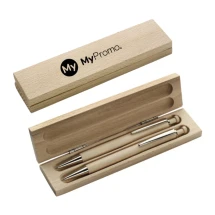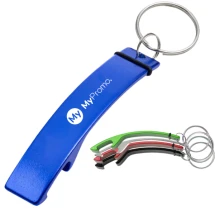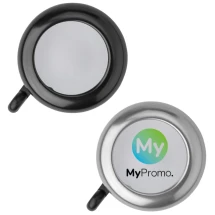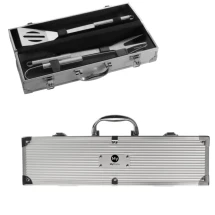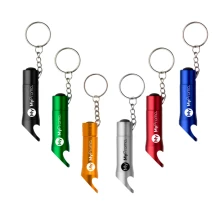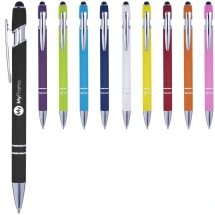Aluminium
What is Aluminium?
Aluminium, a silvery-white, lightweight metal, is one of the most widely used materials in the manufacturing world. This material is prized for its unique combination of properties, including its strength, lightness, and corrosion resistance, making it indispensable across various industries. Historically, aluminium was once considered more valuable than gold because of its rarity and difficulty to extract. It was first isolated in 1825 by Danish chemist Hans Christian Ørsted and has since evolved to become a cornerstone of modern manufacturing techniques. The production of aluminium primarily involves the mining of bauxite ore, which contains a high percentage of aluminium oxide, or alumina. The process starts with the bauxite being refined into alumina using the Bayer process, a method involving the dissolution of bauxite in sodium hydroxide at high temperatures. The alumina is then subjected to an electrolytic process called the Hall-Héroult process, where it is dissolved in molten cryolite and electrolytically reduced to pure aluminium metal.Exploring the Properties and Characteristics of Aluminium
Aluminium is renowned for several key properties: its low density, which makes it incredibly lightweight; high corrosion resistance, which allows it to withstand harsh environments; and excellent conductivity, both thermal and electrical, making it highly effective in applications ranging from electronics to heat exchangers. Additionally, it is non-toxic, highly reflective, and has a good strength-to-weight ratio. These characteristics make aluminium a versatile and valuable material in various sectors.
Aluminium in Action: Applications and Promotional Product Opportunities
Aluminium's applications are extensive and varied, spanning aerospace, automotive, construction, and packaging industries, among others. Notably, it is used in the manufacture of aircraft and vehicles due to its strength and lightness. In the construction sector, aluminium is a preferred material for window frames, roofing, and facades.
In the promotional products sector, aluminium finds significant use due to its excellent machinability and aesthetic qualities. It is commonly used in the creation of personalised items such as personalised keyrings, personalised pens, and promotional drinkware like water bottles and travel mugs. The ability to anodise aluminium adds a layer of durability and colour customisation, enhancing its appeal for corporate branding and personalisation.
Comparative Analysis and Challenges of Using Aluminium
When compared to other metals like steel or copper, aluminium stands out for its lightness and corrosion resistance but has lower tensile strength, which can be a limitation for certain applications. However, its alloys can be engineered to improve strength and durability, making it competitive with steel in many uses. The challenges associated with aluminium include its higher cost of production, particularly due to the energy-intensive nature of its extraction and refining processes. Furthermore, while aluminium is highly recyclable, the recycling process itself needs to be more energy-efficient and widespread to maximise its environmental benefits.
In conclusion, aluminium's unique properties and versatile applications not only make it a pivotal material in manufacturing but also a popular choice for creating promotional items that are both functional and stylish. Its ongoing developments in alloy technology and recycling efforts continue to enhance its value and sustainability, securing its place in the future of manufacturing and marketing.
| Property | Description |
|---|---|
| Density | Low; makes aluminium lightweight and easy to handle |
| Corrosion Resistance | High; withstands harsh environments without deteriorating |
| Conductivity | Excellent thermal and electrical conductivity, ideal for various applications |
| Non-toxicity | Safe for use in consumer products and food-related applications |
| Reflectivity | Highly reflective, useful in lighting and thermal management applications |
| Strength-to-Weight Ratio | Good; enables the use of aluminium in demanding structural applications |
What is aluminium and how is it produced?
Aluminium is a silvery-white, lightweight metal known for its durability and flexibility. It is produced primarily from bauxite ore. The process involves refining bauxite to obtain alumina (aluminium oxide), which is then electrolysed in the Hall-Héroult process to produce pure aluminium metal.
Why is aluminium used so widely in manufacturing?
Aluminium is favoured in manufacturing due to its unique combination of properties. It is lightweight, strong, corrosion-resistant, and conducts electricity and heat well. These properties make it ideal for applications ranging from packaging and construction to aerospace and automotive industries.
Is aluminium environmentally friendly?
Aluminium is considered environmentally friendly due to its recyclability. Nearly 75% of all aluminium ever produced is still in use today, thanks to efficient recycling processes. However, the initial production is energy-intensive, which has environmental impacts unless renewable energy sources are used.
How does aluminium compare to steel?
Aluminium is lighter than steel, making it advantageous in applications where reducing weight is crucial, such as in transport vehicles (cars, planes). Although steel is generally stronger and more affordable, aluminium resists corrosion naturally without the need for additional treatment, making it better suited for certain environments.
What are the limitations of using aluminium in manufacturing?
While aluminium has many advantageous properties, it does have limitations such as lower strength compared to certain steels, which can be an issue in structural applications without proper alloying. Its high thermal expansion can also be problematic in high-temperature applications. Furthermore, the cost of initial production and processing can be higher than other metals like steel.

